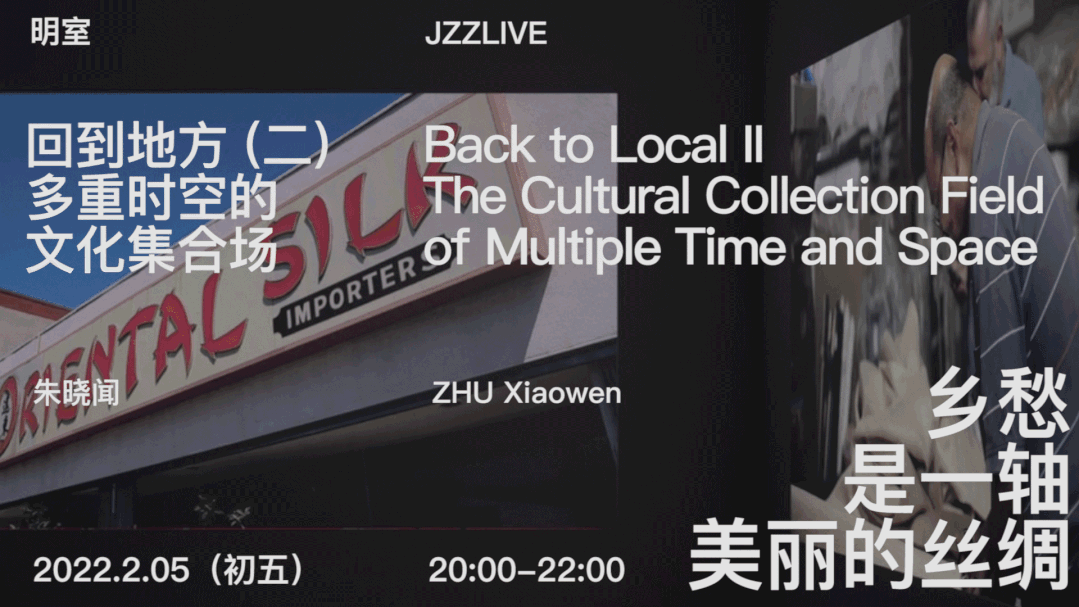Connection lost: does technology make long distance dating harder?
Exhibition report by Angus McNeice in London (chinadaily.com.cn)
Banished to opposite sides of the Milky Way, Chinese tradition has it that star-crossed lovers Zhinu and Niulang are only reunited once a year, on the seventh day of the seventh moon, when a flock of magpies forms a bridge across the "silver river."
The Qixi Festival — or Chinese Valentine's Day — commemorates the annual meeting of that folkloric couple this Tuesday. While lovers head out on romantic dates across China, many of the approximately 50 million Chinese who live abroad will have to make do with mobile apps to connect with partners back home.
London-based artist Xiaowen Zhu dated her partner from afar for several years and found that while technology makes long distance relationships more convenient, it often has unexpected consequences.
Zhu explores the complexity of 21st Century long distance relationships in a video installation at the China Exchange cultural center in central London, on display through Tuesday.
She interviewed 18 couples from Asia, Europe and South America and relayed their experiences through narrators, their voices overlaid, like an echo on Skype. Each performer was given permission to embellish on the script, leaving the audience to decide how much of what they are hearing is the truth
"Trust is the most important thing," says Sean, a Chinese management consultant from Changchun working in London. "You trust her to not do the things you imagine, you trust her to tell you what she's feeling emotionally and you do the same."
Sean's girlfriend lives 5,000 miles away in Beijing. They got together while studying in Bristol in 2009 and started long distance dating when she returned to China for work in 2011. For Sean, it's not been an easy experience.
"Personally, I wouldn't recommend it, it's pretty tough," he says. "If you do it, you have to know why you are doing it — for us it's because we are trying to start our own careers."
Sean and his girlfriend broke up temporarily — he says social media had a lot to do with it. While they were in regular touch on WeChat, the frustration of watching one another play out their individual lives in photo posts became too much.
"(Social media) is what probably messed things up the first time," Sean says. "Obviously you worry — is she going to go out with someone else? She's having a really nice time and I'm just here in my office facing a computer for 10 hours a day."
"Both of us still use social media, but now we don't post anything. We just feel like it creates too much misunderstanding or miscommunication."
Says Zhu of her long distance relationship: "When we would meet in person it was really weird because he looks different in reality," she says. "It's like when actors never look the same on screen as in person. There is a sort of digital identity and a real-life identity.".
"They (the subjects of the art display) came from different backgrounds, though I was really interested in the similarities in experiences when they were talking about their frustration with technology and the challenge to truly trust someone when you don't even share the same time zone," she says. "You don't know what that person has experienced, it's just based on what he or she tells you."
One common frustration was what she called the "mismatch point" on a computer screen — the impossibility of simultaneously looking at the camera and your partner's eyes. One interviewee disliked it so much she and her boyfriend now just write letters to one another. Those letters, containing the highlights and lowlights of a long stretch of time, contrast with another complaint Zhu heard often — that the ability to talk so often on webcams can make interaction less meaningful.
"We'd Skype all the time and we'd run out of things to talk about," one of Zhu's interviewees said.
In researching her project, Zhu says she learned that while there is no rule or "universal understanding" on how to make long distance work, the ability to endure separation greatly depends on an individual's level of personal happiness:
"If you are happy by yourself and you don't rely on the relationship with the other person to make you happy, then you will be able to make the relationship work."
For Sean, it's about doing it for the right reasons — and about growing up.
"In five years both of us grew up a lot, we think about love in a different way — I don't think about not wanting to lose her, I want her to be happy," he says. "Also — if we broke up again I'd be more OK with it. Last time it was the end of the world — now I know it's not anymore."











